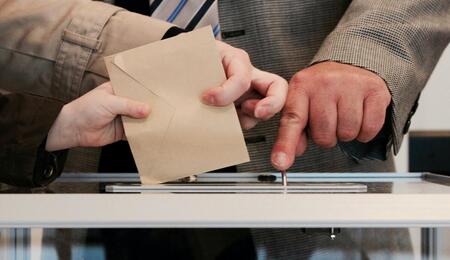Huge Disappointment in Oklahoma

After Nebraska in August, Oklahoma is one more state that fails to qualify a vote on cannabis legalization in this November's elections. Okies may have to wait two more years before they can vote on a measure to legalize the recreational use of cannabis. The prolongation follows after the state Supreme Court denied a petition to include the question on the ballot for the November 2022 elections.
The Oklahoma Supreme Court ruled on Wednesday, Sept. 21, that voters will be able to vote on a ballot proposal on marijuana legalization, however, not until after this year's general election in November. An appeal motioned to the state's highest court from the group Oklahomans for Sensible Marijuana Laws required the State Election Board to include State Question 820 on the ballot for this year's vote; however, it was turned down.
"We're just super disappointed," said Michelle Tilley, director of the Yes On 820 campaign. "We just really feel like the process was used for political reasons," he said.
In recent months, delays in validating signatures have marred the petition process to get the question approved.
The campaign reportedly collected approximately 164,000 signatures, with 117,257 having been verified by the Oklahoma Secretary of State's Office. The number is sufficient to get the question on a ballot, however, with the latest developments, the measure will only appear on the November ballot in 2024 at the latest.
Tilley said in a statement that the Secretary of State's office estimated the validation process would take up to three weeks, but it ultimately took around seven. The office employed a third-party vendor, Western Petition Systems, to verify the signees were registered Oklahoman voters.
Justice Douglas Combs wrote that the company's processing, in part, caused the 820 initiative petition to pass the state election board's deadline of Aug. 26 to allow for printing and shipping of the ballots. "The initiative petition process got bogged down in the Secretary of State's Office," Combs wrote. "Any delays to the process were caused by the Secretary of State's 'learning curve' associated with use of the new software and by the filing of four statutorily allowed protests."
It would be the first time the state of Oklahoma used another method of verifying signatures for any matter. Traditionally, the process would involve merely counting the number of individuals who signed the petition without regard for their voter registration status.
The 820 campaign received four legal challenges along the way. The measure was protested for various reasons, all of which have been denied by the court. However, Tilley adds that the challenges were "frivolous but unfortunately they used the process, and it kept us off this ballot."
How Would Legalization Look Like in Oklahoma?
While this year turns out to be a huge setback for legal weed in Oklahoma, State Question 820 remains the best chance for Oklahomans to launch a legal market in the future.
The measure seeks to legalize recreational marijuana in the Sooner State for adults aged 21 and above. The ballot initiative aims to task the state's existent Oklahoma Medical Marijuana Authority with drafting and implementing regulations for the new recreational sector.
SQ820 also contains provisions allowing past convicts for pot-related offenses to petition the courts to reverse their convictions or delete their criminal records. A 15% tax rate would be applied for adult-use products, while a 7% remains in place for medicinal goods. Tax earnings from recreational pot sales would be divided among the state's General Revenue Fund, local governments that allow licensed businesses to operate within their jurisdictions, the state court districts, and addiction programs.
Is there a possibility for the vote to go ahead before the 2024 general election? Another route to do it is if Republican Governor Kevin Stitt agrees to a special election, but there are slim chances for anything like that to happen. Asked if the governor is considering to call such an election, a spokesperson answered, "our office doesn't have a comment on SQ 820."
Gov. Stitt has expressed his hesitation about legalizing marijuana in Oklahoma in previous statements. "Do I wish that the feds would pass legalized marijuana? Yes. I think that would solve a lot of issues from all these different states," he is noted as saying. "But in our state, just trying to protect our state right now, I don't think it would be good for Oklahoma."







